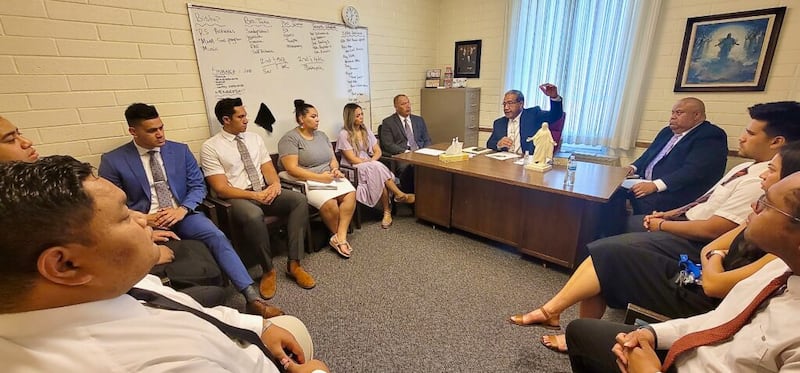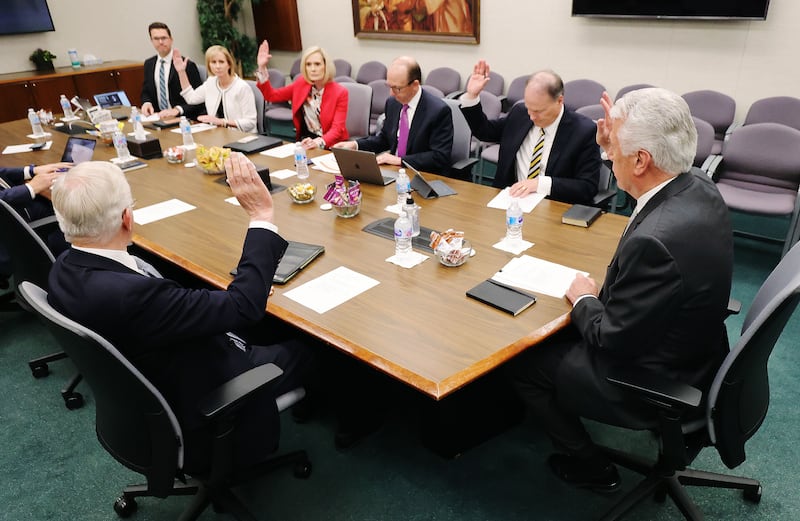When the Prophet Joseph Smith wrote the sixth Article of Faith, he emphasized that the modern Church is a restoration of the ancient Church: “We believe in the same organization that existed in the Primitive Church, namely, apostles, prophets, pastors, teachers, evangelists, and so forth.”
Among those restored organizations are councils, a divine pattern seen in the ancient Church.
For instance, this week’s “Come, Follow Me” study guide includes a record of the Jerusalem Council in Acts 15. This ancient council determined if and how gentile converts should keep the law of Moses.
Today, leaders still meet in councils to make inspired decisions for the The Church of Jesus Christ of Latter-day Saints. Leaders of stakes and wards also meet and counsel together, and families are encouraged to counsel together, as well.
Here’s a look back at the Inside Church Headquarters series, which included an exploration of the Church’s councils.
The Council of the First Presidency and Quorum of the Twelve Apostles
“In our meetings, the majority never rules,” said President Russell M. Nelson, 17th President of the Church. “We listen prayerfully to one another and talk with each other until we are united. Then when we have reached complete accord, the unifying influence of the Holy Ghost is spine-tingling. We experience what the Prophet Joseph Smith knew when he taught, ‘By union of feeling we obtain power with God.’”
Executive councils
The Church is organized with three executive councils that are based on the three keys that were restored in Doctrine and Covenants 110, taught Elder Quentin L. Cook of the Quorum of the Twelve Apostles.
“The council process refines things and perfects them, and the council setting allows great power and purpose to come into them,” he said.
- The keys of the gathering of Israel operate within the purview of the Missionary Executive Council.
- The keys “of the dispensation of the gospel of Abraham” — of fulfilling the Abrahamic covenant — function in the Priesthood and Family Executive Council.
- The sealing keys are found in the Temple and Family History Executive Council.
These executive councils make recommendations to the Council of the First Presidency and Quorum of the Twelve Apostles.
Women’s voices
As Primary General President Camille N. Johnson attended a meeting on her first day in her new calling, she expected to sit back and observe. Instead, she was asked, “Sister Johnson, what do you think?”
“It was sincere interest in what I thought about a particular point; whereas in my previous life, I had to work harder to have my voice heard sometimes,” President Johnson said of her experience in the workplace.
Stake, ward and family councils
Church leaders have frequently emphasized that this divine pattern of counseling also guides stake, ward and family councils, as men and women work together to seek the Lord’s will through inspiration and revelation.

Several leaders, including members of the First Presidency, Quorum of the Twelve Apostles, and Relief Society and Primary general leaders, shared several principles for stake, ward and family councils, including understand stewardship; know your purpose; invite the Spirit by preparing; seek the Lord’s will, not your own; make sure every voice is heard; seek women’s perspectives; listen to learn; and seek consensus through revelation, not compromise.



